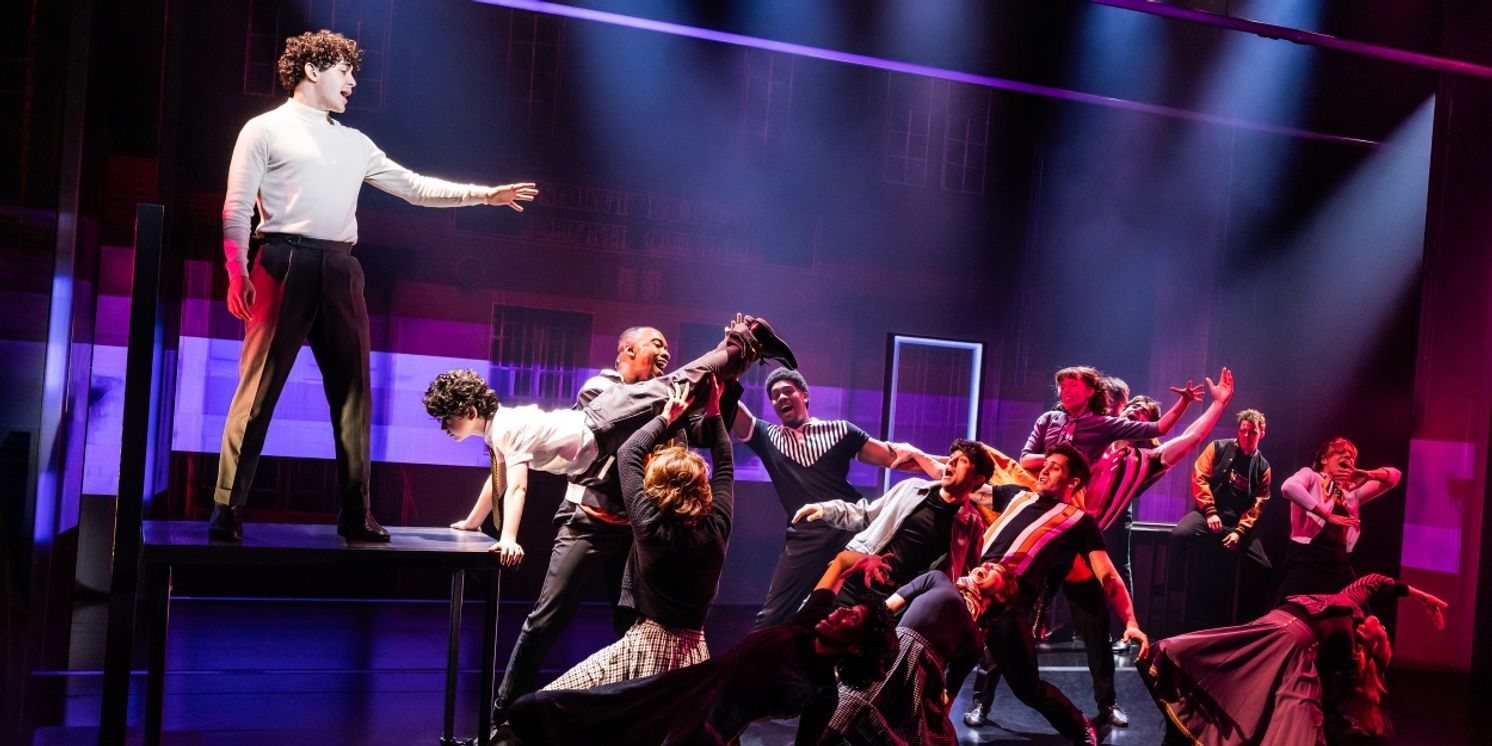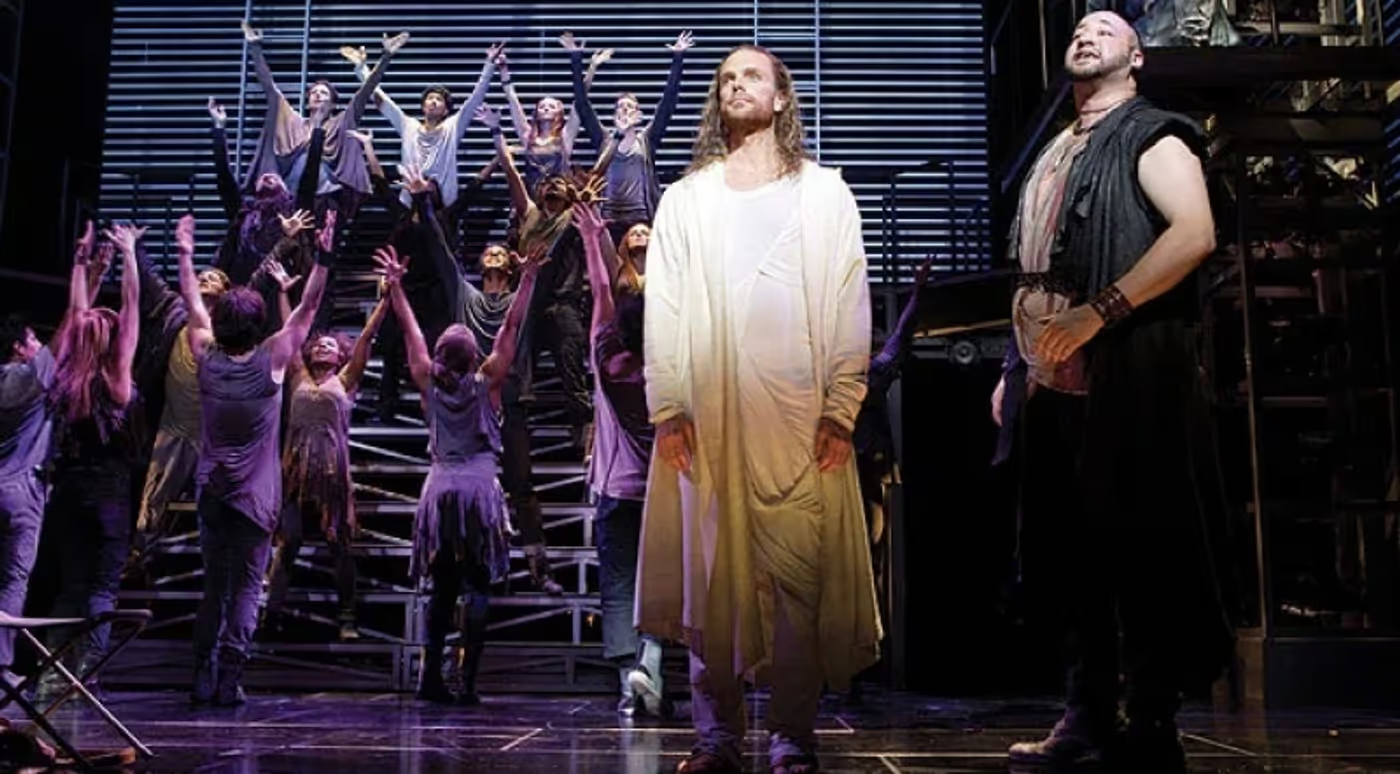What Is a Rock Opera?
Jennifer Ashley Tepper Is answering your questions with Broadway Deep Dive!

Do you have a burning Broadway question? Dying to know more about an obscure Broadway fact? Broadway historian and self-proclaimed theatre nerd Jennifer Ashley Tepper is here to help with her new series, Broadway Deep Dive. Every month, BroadwayWorld will be accepting questions from theatre fans like you. If you're lucky, your question might be selected as the topic of her next column!
Submit your Broadway question in the comments here!
This time, the reader question was: What is a rock opera, and what is their history on Broadway?
A rock opera is a sung-through musical featuring rock music. Some rock operas have a minimal amount of dialogue.
As rock music began to take America by storm in the 1950s, its affect was felt on Broadway—but not on stage. The perception of Broadway and who attended shows changed, as rock ’n’ roll was seen as the medium of youth and theatre was seen as increasingly “establishment” and meant for older audiences. The most significant Broadway musicals that hit during the 1950s certainly had widespread appeal, but they did not incorporate rock and a large amount of young people began setting their sights elsewhere. As shows like South Pacific, Damn Yankees, and My Fair Lady took Broadway by storm, the youth of America were swooning at Elvis Presley concerts and listening to rock on their radios.
When the 1960s hit, rock began infiltrating Broadway. When Bye Bye Birdie opened on Broadway in 1960, it was reportedly the first show there to incorporate an electric guitar, one of the main proponents of rock music, in its orchestra. The central character of the show, Conrad Birdie is a sort-of stand-in for Elvis Presley, and the plot significantly involves teenage characters worshipping this rock idol. Bye Bye Birdie may have mixed in rock instruments and themes, but it was not a rock musical or a rock opera. Other 1960s Broadway musicals including Promises, Promises, Henry, Sweet Henry, and Oh, Calcutta also incorporated elements of rock music in their scores.
The first full rock musical on Broadway was Hair, which revolutionized musical theatre in 1968. Hair’s songs were definitively in the genre of rock, and were used to tell the story of young people who were part of the hippie counterculture movement, fighting for peace, justice, equality, and other causes relevant to the time. Hair was a monumental success, and sent a message that pertinent stories to young people in present day would have to be told through the medium of rock music if they were to be authentic. Since Hair includes more than minimal dialogue, it is not a rock opera, but it definitely paved the way for the rock operas that were to come.
Broadway’s first rock opera was Jesus Christ Superstar. The sung-through musical about the life of Jesus Christ as seen through the lens of contemporary music and sentiments opened on Broadway in 1971, following the release of a 1970 concept album. Concept albums pre-empting the stage premiere of rock operas would continue to be a trend. The show was a hit in many respects, but there was also a large contingent of theatrical stalwarts who were firmly against what they saw as a big left turn from what was allowed on Broadway. The show was seen as so anti-establishment that in fact, at the 1972 Tony Awards, Jesus Christ Superstar was not even nominated for Best Musical.

Meanwhile, off-Broadway, rock musicals proliferated. Since off-Broadway was frequented by younger audiences and had opportunities to take big swings in terms of content and form, due to inherently lower costs, shows like Your Own Thing (1968) and Salvation (1969) thrived there, and others like The Me Nobody Knows (1970) and Godspell (1976) opened off-Broadway first before transferring to Broadway.
The 1970s also brought several rock musicals that were off-shoots of Hair to Broadway, involving some of Hair’s creative team members. 1971’s Two Gentlemen of Verona was a rock opera that adapted Shakespeare, and became a hit. Both Dude (1972) and Via Galactica (1972) were more unconventional, abstract attempts to take the rock musical in different directions. The critical evisceration and very quick closing that both shows experienced put somewhat of a damper on the further development and production of the rock musical.
All rock operas are rock musicals, but not all rock musicals are rock operas. Following Jesus Christ Superstar, a few rock operas with similar tones were seen on Broadway in the 1970s. One was The Lieutenant, a 1975 show about the unlikely topic of the My Lai massacre during the Vietnam War. The show has the distinction of having the shortest run ever for a production nominated for the Best Musical Tony Award. The Lieutenant was an unconventional musical that pushed the form forward but audiences did not quite know what to make of it. The Lieutenant utilizes the sung-though rock format to great affect, as it intensifies the conflict about soldiers in Vietnam, and speaks musically in the modern rock language they would’ve been familiar with at the time.
Following Jesus Christ Superstar, the next mega-hit rock opera was not seen on Broadway until 1993. This was The Who’s Tommy, which is currently being revived for the first time on Broadway. While The Who’s Tommy did not land on Broadway until 1993, its original concept album was actually released in 1969. The Who’s Tommy tells the story of a boy growing up in mid-20th century London who experiences a trauma and becomes deaf, mute, and blind—later becoming a pinball champion.
Another historically significant Broadway rock opera was American Idiot in 2010. Like Jesus Christ Superstar and The Who’s Tommy, the show started out as a concept album. The album, made by rock band Green Day in 2004, was transformed into a sung-through musical that is sometimes called a “punk rock opera” since the type of rock music it utilizes is different than the rock music of the 20th century. Like Hair, the medium was used to tell the story of young people and their modern-day struggles including their disillusion with America.
Other shows that have emerged in the 21st century have also qualified the category of “rock opera”, calling themselves “pop rock operas”, “country rock musicals” or similarly detailed genres. While many new musicals these days are rock musicals, far fewer are sung-through rock operas. That said, it is still a genre that inspires new shows, as well as revivals of existing ones.
Comments
Videos

